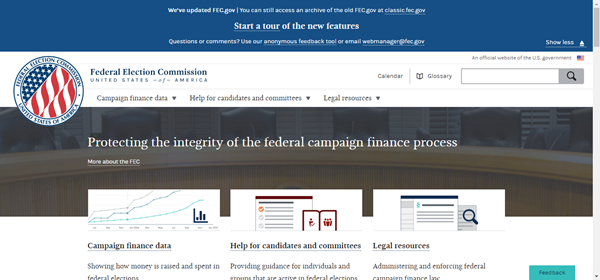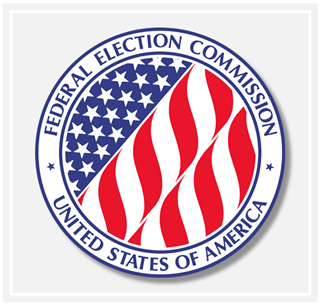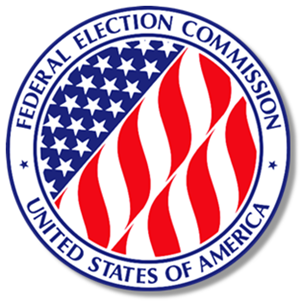May 24, 2017 •
FEC Launches Redesigned Website
Today, the Federal Election Commission (FEC) launched a newly revamped website. The new website has been in public beta form since October 2015. The organization of the website is broken down into three main areas: campaign finance data, candidate and […]
 Today, the Federal Election Commission (FEC) launched a newly revamped website. The new website has been in public beta form since October 2015.
Today, the Federal Election Commission (FEC) launched a newly revamped website. The new website has been in public beta form since October 2015.
The organization of the website is broken down into three main areas: campaign finance data, candidate and committee information and help, and legal resources. Included in the redesigned website’s new infrastructure is increased HTTPS security and database synchronization and new search functions and visual graphics meant to create an easier user experience.
An archive of the old FEC website is still available at http://classic.fec.gov and is still being used for links not yet brought forward into the updated website.
On May 22, the United States Supreme Court affirmed a lower court’s finding of summary judgement upholding the constitutionality of the Federal Election Campaign Act’s regulation of the use of so-called soft money. In Republican Party of Louisiana v. FEC, […]
 On May 22, the United States Supreme Court affirmed a lower court’s finding of summary judgement upholding the constitutionality of the Federal Election Campaign Act’s regulation of the use of so-called soft money.
On May 22, the United States Supreme Court affirmed a lower court’s finding of summary judgement upholding the constitutionality of the Federal Election Campaign Act’s regulation of the use of so-called soft money.
In Republican Party of Louisiana v. FEC, the United States District Court for the District of Columbia rejected a challenge to federal campaign finance provisions requiring state and local political parties to abide by federal regulations concerning certain political activities such as get-out-the-vote and voter registration drives and the resulting reporting requirements.
In response to an appeal from the plaintiffs, the Supreme Court affirmed the District Court’s decision.
February 27, 2017 •
Supreme Court Affirms, Without Written Opinion, Lower Court’s Ruling Regarding Campaign Finance Disclosure
Today, the United States Supreme Court affirmed electioneering communication disclosure requirements under the Bipartisan Campaign Reform Act (BCRA). In Independence Institute v. FEC, the Supreme Court affirmed, without a written opinion, a lower court’s summary judgement against Independence Institute, a […]
 Today, the United States Supreme Court affirmed electioneering communication disclosure requirements under the Bipartisan Campaign Reform Act (BCRA).
Today, the United States Supreme Court affirmed electioneering communication disclosure requirements under the Bipartisan Campaign Reform Act (BCRA).
In Independence Institute v. FEC, the Supreme Court affirmed, without a written opinion, a lower court’s summary judgement against Independence Institute, a Colorado based 501(c)(3) tax-exempt organization. Independence Institute argued the BCRA’s disclosure requirements for electioneering communications were overbroad and violated the First Amendment.
Electioneering communication is defined as any broadcast, cable, or satellite communication referring to a clearly identified federal candidate, made within 30 days of a primary election or 60 days of a general, special, or runoff election, and targeted to the relevant electorate.
On November 3, 2016, the U.S. District Court for the District of Columbia had rejected the Independence Institute’s challenge to the BCRA’s electioneering communication provisions and granted the Federal Election Commission’s motion for summary judgment.
February 23, 2017 •
FEC Commissioner Ravel Resigns Effective March 1
On March 1, Commissioner Ann M. Ravel will resign from the Federal Election Commission (FEC). In her February 19 resignation letter to the president, Commissioner Ravel urged he prioritize campaign finance reform, strengthen disclosure law, and “reduce reliance on the […]
 On March 1, Commissioner Ann M. Ravel will resign from the Federal Election Commission (FEC). In her February 19 resignation letter to the president, Commissioner Ravel urged he prioritize campaign finance reform, strengthen disclosure law, and “reduce reliance on the wealthy.”
On March 1, Commissioner Ann M. Ravel will resign from the Federal Election Commission (FEC). In her February 19 resignation letter to the president, Commissioner Ravel urged he prioritize campaign finance reform, strengthen disclosure law, and “reduce reliance on the wealthy.”
With Ravel’s absence, there will be three registered members of the Republican Party and two registered members of the Democratic Party on the Commission. The FEC requires at least four commissioners to agree for any official action. A replacement for Ravel will be selected by President Trump and must be confirmed by the U.S. Senate.
While not more than three members of the commission may be registered with the same political party, the president is not obligated to nominate a member of the Democratic Party, of which Ravel is a registered member.
January 13, 2017 •
FEC Unable to Agree on Rulemaking Concerning Foreign Influence on Political Spending
On January 12, the Federal Election Commission (FEC) was unable to agree on a policy to clarify when and if a U.S. domestic subsidiary corporation of a foreign national is illegally involved in political activity. Federal law prohibits foreign nationals from […]
 On January 12, the Federal Election Commission (FEC) was unable to agree on a policy to clarify when and if a U.S. domestic subsidiary corporation of a foreign national is illegally involved in political activity.
On January 12, the Federal Election Commission (FEC) was unable to agree on a policy to clarify when and if a U.S. domestic subsidiary corporation of a foreign national is illegally involved in political activity.
Federal law prohibits foreign nationals from directly or indirectly making contributions, donations, expenditures, independent expenditures, and disbursements in connection with federal, state, or local elections. FEC regulations also prohibit foreign nationals from directing, controlling, or participating in the decision-making process of any person, such as a corporation, with regards to decisions concerning the making of contributions, donations, expenditures, or disbursements in connection with elections in the U.S.
Additionally, the FEC was unable to reach an agreement on the creation of a safe harbor for political committees to accept corporate contributions deemed not to have come from foreign national sources.
In response, Vice Chair Caroline C. Hunter and Commissioners Matthew S. Petersen and Lee E. Goodman issued a statement.
A previous attempt to reach an agreement on this issue in September also failed.
November 22, 2016 •
Tuesday Lobbying and Campaign Finance News Update
Lobbying “White Nationalists Dress Up and Come to Washington in Hopes of Influencing Trump” by Lisa Mascaro for Los Angeles Times “Groups Ease Off Events for Lawmakers Under New Lobbying Law” by James Nord (Associated Press) for The Washington Times […]
 Lobbying
Lobbying
“White Nationalists Dress Up and Come to Washington in Hopes of Influencing Trump” by Lisa Mascaro for Los Angeles Times
“Groups Ease Off Events for Lawmakers Under New Lobbying Law” by James Nord (Associated Press) for The Washington Times
Campaign Finance
“FEC Deadlocks, Won’t Investigate Dark Money Group That Spent All Its Funds On an Election” by Robert Maguire for Center for Responsive Politics
California: “Did Money Buy California Ballot Measure Contests?” by Taryn Luna for The Sacramento Bee
Kentucky: “State Agencies Investigate Political Donations Raised by Tim Longmeyer, Others” by John Cheves for Lexington Herald-Leader
Ethics
“Ethics Watchdog Updates Gift Rules for Federal Workers” by Megan Wilson for The Hill
“A Scramble to Assess the Dangers of President-elect Donald Trump’s Global Business Empire” by Drew Harwell and Anu Narayanswamy for The Washington Post
Arkansas: “Lawmakers File Bills on Ethics, Taxes, Sessions” by John Lyon (Arkansas News Bureau) for The Times Record
Florida: “Convicted Opa-locka City Manager Gets 3 Years in Prison for Taking Bribes” by Jay Weaver and Michael Sallah for Miami Herald
Pennsylvania: “Mastery Charter Schools to Pay $2,000 to Settle City Ethics Complaint” by Martha Woodall for Philadelphia Inquirer
Elections
“Underestimating the Unconventional” by Susan Milligan for U.S. News and World Report
September 23, 2016 •
FEC Names New Acting General Counsel
On September 22, Lisa J. Stevenson was named acting general counsel for the Federal Election Commission (FEC). Stevenson is replacing Daniel A. Petalas, who is leaving the FEC join the Washington, D.C., law firm Garvey Schubert Barer. Because the FEC […]
 On September 22, Lisa J. Stevenson was named acting general counsel for the Federal Election Commission (FEC).
On September 22, Lisa J. Stevenson was named acting general counsel for the Federal Election Commission (FEC).
Stevenson is replacing Daniel A. Petalas, who is leaving the FEC join the Washington, D.C., law firm Garvey Schubert Barer.
Because the FEC has not been able to agree on a general counsel since 2013, the appointments have been designated as acting general counsel.
September 16, 2016 •
FEC Unable to Agree on Policy Regarding Permissible Corporate Political Activity by U.S. Domestic Subsidiaries of Foreign Nationals
On September 15, the Federal Election Commission (FEC) was unable to agree on a policy to clarify when and if a U.S. domestic subsidiary corporation of a foreign national is illegally involved in political activity. Federal law prohibits foreign nationals […]
 On September 15, the Federal Election Commission (FEC) was unable to agree on a policy to clarify when and if a U.S. domestic subsidiary corporation of a foreign national is illegally involved in political activity.
On September 15, the Federal Election Commission (FEC) was unable to agree on a policy to clarify when and if a U.S. domestic subsidiary corporation of a foreign national is illegally involved in political activity.
Federal law prohibits foreign nationals from directly or indirectly making contributions, donations, expenditures, independent expenditures, and disbursements in connection with federal, state, or local elections. FEC regulations also prohibit foreign nationals from directing, controlling, or participating in the decision-making process of any person, such as a corporation, with regards to decisions concerning the making of contributions, donations, expenditures, or disbursements in connection with elections in the U.S.
Additionally, the FEC was unable to reach an agreement on the creation of a safe harbor for political committees to accept corporate contributions deemed not to have come from foreign national sources.
Two delegates to the 2016 Republican National Convention are permitted to receive free legal services from corporate nonprofit organizations thanks to a legal settlement between the delegates and the Federal Election Commission (FEC). On July 22, in Two Unnamed Plaintiffs […]

Two delegates to the 2016 Republican National Convention are permitted to receive free legal services from corporate nonprofit organizations thanks to a legal settlement between the delegates and the Federal Election Commission (FEC).
On July 22, in Two Unnamed Plaintiffs v. FEC, the U.S. District Court for the District of Wyoming issued an order consenting to the settlement between the parties. The case arose from concerns that presidential candidate Donald Trump would bring litigation against those supporting delegate autonomy at the Republican National Convention, according to a press release from Pillar of Law Institute.
Benjamin Barr, lead counsel in the case, believes this settlement provides precedent for future convention delegates, including delegates at this week’s Democratic National Convention. “With this win, conscientious delegates now and for conventions to come are not alone. Non-profit corporations are free to help fund their efforts and donate legal services, breathing new life into the convention process,” said Barr in the press release.
Earlier this month, the Federal Election Commission dismissed complaints against two North Dakota Republican leaders regarding foreign campaign contributions received from a Canadian businessman. The Federal Election Campaign Act bars foreign nationals from making financial donations in connection with federal, […]
 Earlier this month, the Federal Election Commission dismissed complaints against two North Dakota Republican leaders regarding foreign campaign contributions received from a Canadian businessman.
Earlier this month, the Federal Election Commission dismissed complaints against two North Dakota Republican leaders regarding foreign campaign contributions received from a Canadian businessman.
The Federal Election Campaign Act bars foreign nationals from making financial donations in connection with federal, state or local elections.
The politicians claim they accepted the contributions based on incorrect advice received from the North Dakota Secretary of State’s Office. The FEC ultimately dismissed the complaints because the contributions were refunded within the 30-day time period allowed by commission regulations.
May 25, 2016 •
Wednesday Government Relations News
Lobbying Missouri: “Impact of Missouri’s ‘Revolving Door’ Lobbyist Law Questioned” by Jason Hancock for Kansas City Star Campaign Finance “Despite Recommendations, FEC Won’t Pursue Charges that Murray Energy Coerced Campaign Donations from Employees” by Sabrina Eaton for Cleveland Plain Dealer […]
 Lobbying
Lobbying
Missouri: “Impact of Missouri’s ‘Revolving Door’ Lobbyist Law Questioned” by Jason Hancock for Kansas City Star
Campaign Finance
“Despite Recommendations, FEC Won’t Pursue Charges that Murray Energy Coerced Campaign Donations from Employees” by Sabrina Eaton for Cleveland Plain Dealer
“NRA to Pay $15,000 for Breaking State Campaign-Finance Rules” by Joseph O’Sullivan for Seattle Times
Virginia: “Officials: Federal prosecutors investigating Virginia Gov. McAuliffe” by Matt Zapotosky for Washington Post
Ethics
“Facebook Says an Investigation Found No Evidence of Bias in a News App” by Mike Isaac for New York Times
“NFL Tried to Influence ‘Unrestricted’ Research Gift, Congressional Report Says” by Rick Maese for Washington Post
Massachusetts: “Legislature Poised to Pass Public Records Measure” by Joshua Miller for Boston Globe
Elections
“Getting a Photo ID So You Can Vote Is Easy. Unless You’re Poor, Black, Latino or Elderly.” by Sari Horwitz for Washington Post
“Democrats Are Gay, Republicans Are Rich: Our stereotypes of political parties are amazingly wrong” by John Sides for Washington Post
“Reeling from 2016 Chaos, G.O.P. Mulls Overhaul of Primaries” by Jeremy Peters for New York Times
April 15, 2016 •
FEC Discusses Motion for Rule-Making Concerning Political Expenditures and Contributions from Foreign Nationals
On April 14, the Federal Election Commission (FEC) considered a motion to open a rule-making concerning whether to require entities accepting political contributions from corporations to verify those corporations are associations of United States citizens who are eligible to contribute. […]
 On April 14, the Federal Election Commission (FEC) considered a motion to open a rule-making concerning whether to require entities accepting political contributions from corporations to verify those corporations are associations of United States citizens who are eligible to contribute. Commissioner Ellen L. Weintraub had previously submitted the motion contending there is “no framework in place to assist entities accepting political contributions or making independent expenditures and electioneering communications in complying with existing law.” Federal law prohibits foreign nationals from making political contributions and expenditures. Federal contractors are also prohibited from making certain political contributions and expenditures.
On April 14, the Federal Election Commission (FEC) considered a motion to open a rule-making concerning whether to require entities accepting political contributions from corporations to verify those corporations are associations of United States citizens who are eligible to contribute. Commissioner Ellen L. Weintraub had previously submitted the motion contending there is “no framework in place to assist entities accepting political contributions or making independent expenditures and electioneering communications in complying with existing law.” Federal law prohibits foreign nationals from making political contributions and expenditures. Federal contractors are also prohibited from making certain political contributions and expenditures.
The commission also discussed a motion for rule-making regarding political funding from foreign nationals. The motion asks the commission to make a regulation requiring those making independent expenditures to certify no resources owned or controlled by foreign nations were used. The FEC has tentatively scheduled to meet at the FEC headquarters on June 23 to discuss corporations and foreign money.
March 26, 2016 •
FEC May Consider Motion for Rule-Making Concerning Certification of Certain Political Contributions
On March 31, the Federal Election Commission may consider a motion to open a rule-making concerning whether to require entities accepting political contributions from corporations to verify those corporations are associations of United States citizens who are eligible to contribute. […]
 On March 31, the Federal Election Commission may consider a motion to open a rule-making concerning whether to require entities accepting political contributions from corporations to verify those corporations are associations of United States citizens who are eligible to contribute.
On March 31, the Federal Election Commission may consider a motion to open a rule-making concerning whether to require entities accepting political contributions from corporations to verify those corporations are associations of United States citizens who are eligible to contribute.
On March 24, Commissioner Ellen L. Weintraub submitted the motion contending there is “no framework in place to assist entities accepting political contributions or making independent expenditures and electioneering communications in complying with existing law.” Federal law prohibits foreign nationals from making political contributions and expenditures. Federal contractors are also prohibited from making certain political contributions and expenditures.
Weintraub is further requesting the commission direct the Office of General Counsel to draft a rule-making document requiring those making independent expenditures and electioneering communications certify resources used are not owned or controlled by foreign nationals.
March 1, 2016 •
U.S. Sen. Tom Udall Moves to Replace FEC
Today, U.S. Sen. Tom Udall is introducing the Federal Election Administration Act, a bill intended to replace the Federal Election Commission. The legislation is supported in letters to U.S. Senators from several reform groups, including the Campaign Legal Center, Common […]
 Today, U.S. Sen. Tom Udall is introducing the Federal Election Administration Act, a bill intended to replace the Federal Election Commission. The legislation is supported in letters to U.S. Senators from several reform groups, including the Campaign Legal Center, Common Cause, Democracy 21, Issue One, People for the American Way, Public Citizen, Rootstrikers, and U.S. PIRG. According to the letter, a five-member Federal Election Administration will be created to enforce election laws and “will consist of a chairman and four other members, all of whom are to be appointed by the president, with the advice and consent of the Senate.” No more than two members of the agency can be from the same political party. The letter can be found here.
Today, U.S. Sen. Tom Udall is introducing the Federal Election Administration Act, a bill intended to replace the Federal Election Commission. The legislation is supported in letters to U.S. Senators from several reform groups, including the Campaign Legal Center, Common Cause, Democracy 21, Issue One, People for the American Way, Public Citizen, Rootstrikers, and U.S. PIRG. According to the letter, a five-member Federal Election Administration will be created to enforce election laws and “will consist of a chairman and four other members, all of whom are to be appointed by the president, with the advice and consent of the Senate.” No more than two members of the agency can be from the same political party. The letter can be found here.
State and Federal Communications, Inc. provides research and consulting services for government relations professionals on lobbying laws, procurement lobbying laws, political contribution laws in the United States and Canada. Learn more by visiting stateandfed.com.


